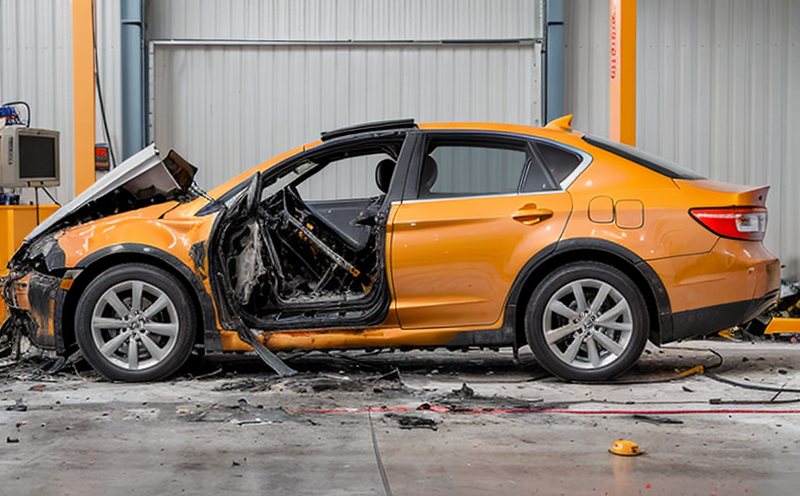UL 2580 Crash and Mechanical Abuse Testing of EV Battery Systems
Industry Applications
| Application | Description |
|---|---|
| Lithium-ion Battery Manufacturers | Ensure product safety and reliability by meeting regulatory requirements. |
| Automotive OEMs & Tier 1 Suppliers | Validate battery performance in challenging environments through rigorous testing protocols. |
| EV Charging Infrastructure Providers | Demonstrate compliance with international standards for EV safety and security. |
Use Cases and Application Examples
| Use Case | Description |
|---|---|
| Automotive Crash Testing | Simulate real-world crash conditions to evaluate battery performance post-impact. |
| Transportation and Logistics | Ensure that batteries used in transportation equipment meet safety standards for use on public roads. |
| Emergency Services | Test the durability of batteries used by emergency vehicles under extreme conditions such as fires or floods. |
- Automotive manufacturers can rely on UL 2580 crash testing to validate their EV battery designs before finalizing production.
- Logistics companies can use this standard to ensure that batteries used in delivery vehicles are safe and reliable.
- Emergency services departments may benefit from knowing how well the batteries powering their equipment will hold up during natural disasters or accidents.
Frequently Asked Questions
What is UL 2580 crash testing?
UL 2580 crash testing involves subjecting electric vehicle battery systems to various forms of mechanical abuse, such as drops from heights and punctures with sharp objects. It simulates real-world crash conditions in order to evaluate the safety performance of these batteries.
Why is UL 2580 important?
UL 2580 ensures that electric vehicle battery systems meet stringent safety standards, thereby protecting both consumers and operators from potential hazards associated with electrical malfunctions or failures.
Which types of batteries are covered by UL 2580?
The standard covers prismatic and cylindrical cells, pouch cells, as well as complete battery packs up to a capacity of 10 kWh.
Is UL 2580 mandatory for all EV manufacturers?
While not strictly mandated by law in every country, compliance with UL 2580 is highly recommended as it enhances brand reputation and builds consumer confidence.
How long does the testing process take?
The duration varies depending on the complexity of the battery system being tested but typically ranges from several days to a few weeks.
What kind of equipment is used during UL 2580 crash testing?
Equipment includes vibration tables, drop towers, puncture machines, and temperature chambers designed to simulate various types of mechanical abuse and environmental conditions.
How do manufacturers prepare their batteries for UL 2580 crash testing?
Manufacturers must follow specific preparation procedures outlined in the standard, including charging cycles, conditioning processes, and ensuring that all components are properly assembled.
What kind of reporting is required after UL 2580 crash testing?
Comprehensive reports detailing test results must be submitted to the relevant certification body. These reports include data on any failures observed during testing along with recommendations for improvements.





